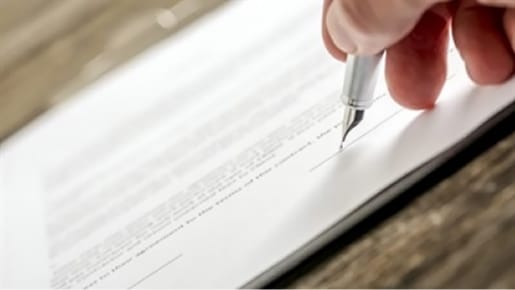Whether you are a first-time buyer, looking to remortgage a property or buy-to-let, then you will be faced with tackling the mortgage application process.
If this is not the first time you have applied for a mortgage then you will be aware of the steps involved. The mortgage application process begins with some vital questions which will lead you to make some very big decisions. A mortgage is the biggest loan you will ever take out, so the decisions you make in relation to the amount you borrow shouldn’t be taken lightly. So, just what are the preliminary questions you should be asking yourself before you begin the mortgage application process?
How much can you afford to borrow?
Typically, a lenders affordability criteria stipulates that they will lend up to four times your income. If you have a joint income then the combined income multiple will be used, so if a couple earns £35,000 each per year then they can borrow up to £280,000 to buy their new house.
How much deposit do you need?
The bigger your deposit, the better the mortgage deal you are likely to get. If you can get your loan to value ratio to 60% then you will be able to access a set of mortgage deals with a lower interest rate. So if you are looking to buy a £200,000 house, to have a 60% loan to value ratio the you would need a deposit of £80,000 and would be looking for a mortgage of £120,000.
What are the other costs involved?
Aside from the deposit you require to buy the house, you will also need additional fund to cover the stamp duty, survey costs, lender fees, broker fees and legal costs. These can mount up so it is good to be wise to the amounts involved before you embark on the mortgage application process. As a guide you should expect to pay between 2-3% of the house price to cover these costs.
How do I know when I’m ready to start applying for a mortgage?
The key factor in determining whether you are ready to take steps to apply for a mortgage is finding a suitable property. You can either take the decision to make an offer on the property before you make a mortgage enquiry or take the favoured approach, which is to know exactly how much a lender is willing to let you borrow before you making your offer. This is known has having an ‘agreement in principle’. Whichever way to choose to go about it, once you’ve found your dream home or investment property it is time to make that all important mortgage application process call.
Step 1: Contact a specialist broker
If you want to have access to the whole mortgage market and work with someone understands a doctors pay structure regardless of what stage of your career you may be at, then finding a specialist broker is far more beneficial than going along to your high street bank. Your individual circumstances will be assessed and you will be given a range of different mortgage deals to suit you. The time taken by a specialist broker to gather your personal information, and source your deals will take a fraction of the time it would take to go direct.
At this stage of the process, the broker will carry out a ‘soft’ search on your credit record. This will provide them with enough information to now whether lenders will be prepared to lend to you. A soft search doesn’t show on your credit file, so will not affect your credit rating score.
Step 2: Obtaining a ‘Decision In Principle’
Once your lending potential has been assessed, you will be provided with a ‘decision in principle’ or a ‘mortgage in principle’ document. This document doesn’t mean that you have been granted a mortgage, but it is a statement confirming than a lender is willing to lend to you based on your credit score, and pending the receipt of the relevant paperwork, hard credit check, proof of earnings, proof of ID and an independent property valuation. Armed with this document you are in a great position to make an offer on your chosen property.
Step 3: Your official mortgage application
If good new prevails and your offer is accepted by the seller, your official mortgage application process can begin. Your specialist mortgage broker will manage the whole process for you and only contact you if they need to during this time. A hard credit check will now show up on your credit record and your personal information assessed in detail.
Step 4: Valuing the property
A valuation on your chosen property is carried out by an independent surveyor that will be instructed by the lender. The reason for this is to check that the property you are wishing to purchase is worth what you are asking to borrow to pay for it, so that if you failed to pay your mortgage, the lender is then in possession of an asset which is worth what you paid for it and won’t leave them in a detrimental position if they needed to sell it. Depending on the outcome of the property valuation, you loan to value mortgage ratio could possible increase or decrease, which may impact the interest rate you are offered.
Whilst this is all going on, your lender will also be checking all the information you have submitted via your specialist mortgage broker is correct.
Step 5: Getting your official mortgage offer
If everything is in order and no problems are encountered during the valuation and application process then you should go on to receive your official mortgage offer. If you accept the offer then you need to instruct a solicitor to act on your behalf and undertake the conveyancing process for you. If you and the seller are happy, the solicitor will then manage the proceedings from here-on in. Once contracts are exchanged and a completion date in place, the property will be yours to own!
As your mortgage deal nears its end, don’t forget to contact your specialist mortgage broker in the run up, to to allow them enough time to source a suitable remortgage deal for you to transfer over to. Having paid off your mortgage for a while you may be able to get a far better rate than you did when you purchased the property.




